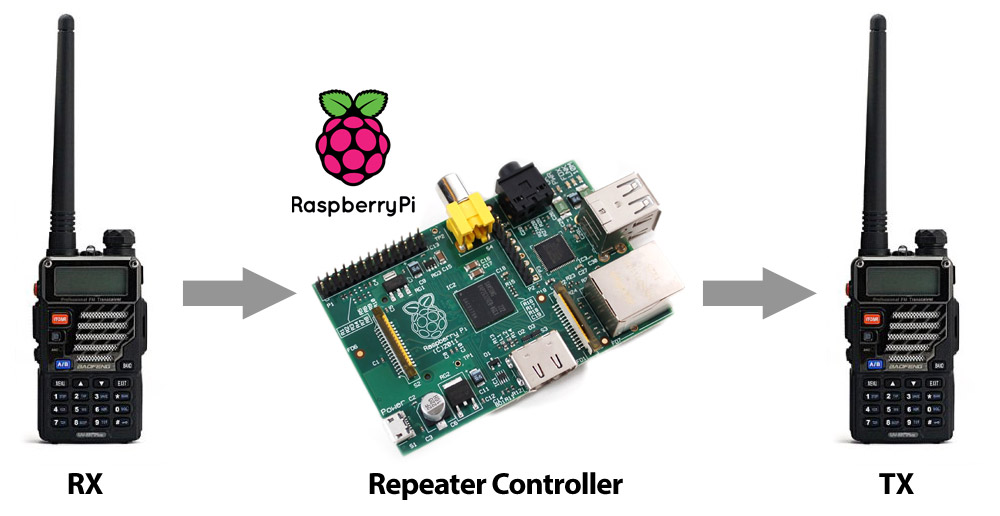So over the last couple weeks, I’ve been working on a new project to develop a low cost, low power, but feature rich duplex repeater controller suitable for setting up a temporary / emergency repeater systems with radios that can be run on portable power. This is all going to be based on the Raspberry Pi. I’ve been coding and testing the backend in virtual environment. Here are some updates on the project including a link to the project page, some screen shots, and my projected development path.
Web Interface
Projected Development Path
[list type=”arrow3″]
- [DONE] Research: Look into feasibility of the project. Look for other real world projects utilizing the technologies on the Raspberry Pi that I will require for my setup. Technologies such as LAMP (Linux-Apache-MySQL-PHP) used for the web based interface to configure the repeater controller and speech synthesis and audio playback for voice and CW identification/notices and courtesy tones.
- [MOSTLY DONE] Virtualized Development: Created a virtual machine running Debian with minimal system resources to begin coding Python program for repeater controls, integrate technologies for voice ID, CW ID, and courtesy tone playback. Configure LAMP server for UI control and configuration storage. Start documentation.
- Begin Raspberry Pi Testing: Move same configuration on virtual machine on to an actual Raspberry Pi and start refining and testing code with basic GPIO inputs and outputs.
- Circuit Design: Start designing and refining circuitry for radio interfacing and make prototype board.
- Further Design and Programing Refinements
- Work towards low number production run
- Marketing and Future Direction Evaluation and Planning




Have you tried SvxLink (svxlink.org)? It is used both as a repeater controller and for EchoLink. I have found multiple instances of SvxLink being used on a Raspberry Pi for echolink. There is a build of SvxLink for ArchLinux, and Arch has been ported to the Raspberry Pi. I have not had the opportunity to try SvxLink on the RaspberryPi yet, but that does sound like an interesting winter project.
Antony, yes the project is now using svxlink at the core. The video is out of date and many changes have been made since this post.
Have you heard about our RS-UV3 transceiver boards. They are perfect for this type of project, tiny low power, inexpensive but unlike the Chinese radios they exceed all FCC requirements, they cover 3 bands (144, 220, 440) and they have a well documented interface for serial control functions, text to CW, DTMF encode/decode etc.
Check them out at HobbyPCB.com
Hi Jim. It’s definitely something to keep in mind for the future. Feel free to send me a private message (i.e. Facebook, Twitter, etc.) and we can chat there.
I have used various repeater controllers over the years…….Before I rush out and buy a Raspberry Pi….Can anyone tell me the latest features of this project please?
Thanks Dave
Hello Dave,
Stay tuned as we are getting ready to release next version (1.1.0). The system is built on top of a well established linux system called SVXLink. SVxLink in of itself is capable of a lot of things, it is just not straight forward to configure. This project takes that power and adds a user friendly web control panel to front end to do the config and some other functions. Not all the features of SVXLink are utilized just the more common stuff in relation to a duplex repeater controller. It basically functions as a duplex controller, gives you various ID opiotns, various courtesy tone options, and Echolink all from a single board computer. The project wraps up our interface and code with svxlink and some other dependancies and a Debbian OS to make for a simple install. We plan to keep adding more functionality as long as it makes sense, can be done cleanly and in a user friendly manner. Since SVXLink is already capable, you could even hack it if need be. Hope that helps.